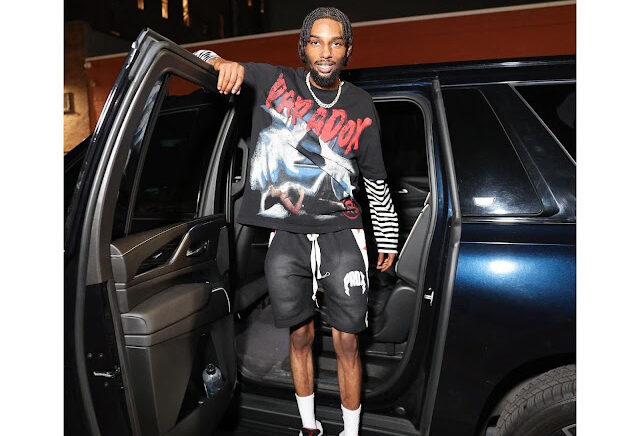Abdul Paul, known by his stage name YBC Dul, was a rising star in the Philadelphia rap scene, a member of the rap group and street gang YoungBagChasers (YBC). Born and raised in Philadelphia, Abdul’s life was a testament to the resilience and creativity that often emerges from challenging circumstances.
His music, much like his personality, was raw, unfiltered, and deeply reflective of the life he lived in the streets of Philadelphia. YBC Dul’s untimely death has sent shockwaves through his community, leaving a void that will be difficult to fill.
Abdul Paul was born and raised in one of Philadelphia’s most challenging neighborhoods. The streets where he grew up were often marked by violence, poverty, and a lack of opportunities. However, it was also these streets that shaped his worldview and became the canvas for his musical expression.
From a young age, Abdul was drawn to music as a means of escaping the harsh realities of his environment. He found solace in the rhythm and beats of hip-hop, and soon began crafting his own lyrics, which often reflected his personal experiences and the struggles of those around him.
Music became more than just a hobby for Abdul; it was his voice, his way of communicating the complexities of street life. As he honed his craft, Abdul adopted the stage name YBC Dul, a moniker that represented his affiliation with the YoungBagChasers, a rap group that was also closely linked to a street gang of the same name.
The YoungBagChasers were more than just a musical group; they were a brotherhood, a collective of young men who navigated the treacherous waters of street life together, using music as both an outlet and a means of survival.
YBC Dul quickly became a prominent figure within the YoungBagChasers, not only for his lyrical prowess but also for his charismatic presence. His music was a reflection of the life he led, filled with stories of struggle, survival, and the constant pursuit of success in a world that often seemed stacked against him. His songs resonated with many young people in Philadelphia who shared similar experiences, and he soon garnered a loyal following.
Abdul’s music was characterized by its gritty realism. He rapped about the challenges of growing up in a city plagued by violence, the allure of fast money, and the tightrope walk between staying true to one’s roots and striving for a better life.
His lyrics were often stark, offering a no-holds-barred look at the realities of street life. But amidst the tales of hardship, there was also a sense of hope and determination—a belief that through music, he could transcend his circumstances and create a better future for himself and those around him.
The news of Abdul Paul’s death sent shockwaves through the Philadelphia community and beyond. On August 23rd, YBC Dul was tragically killed in an incident that authorities have linked to the ongoing violence that has plagued Philadelphia in recent years.
His death was not just the loss of a talented artist, but also a stark reminder of the dangers that young people in certain neighborhoods face every day.
The circumstances surrounding Abdul’s death remain under investigation, but what is clear is the profound impact he had on those who knew him and those who were touched by his music. His passing has left a void in the lives of his family, friends, and fans, many of whom took to social media to express their grief and pay tribute to the young rapper.
Despite his short life, YBC Dul left behind a significant legacy. His music continues to resonate with those who are navigating similar struggles, serving as a testament to the power of art as a form of expression and resistance. Abdul Paul was more than just a rapper; he was a voice for his community, a storyteller who used his platform to shed light on the realities of life in the streets of Philadelphia.
